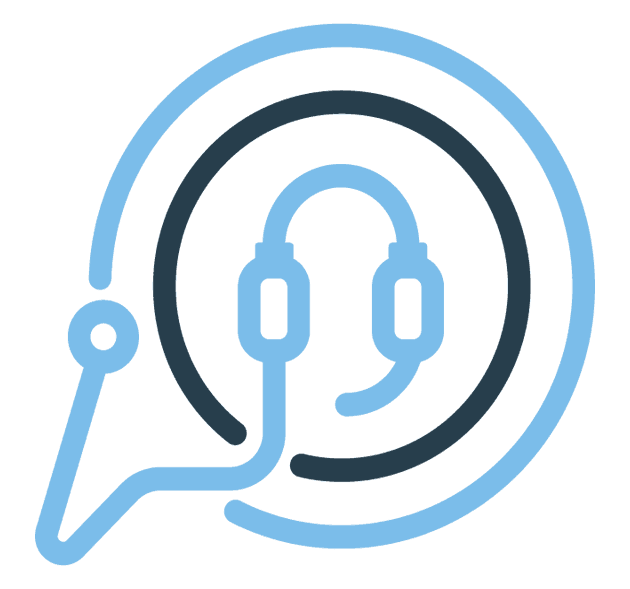Achieving efficient clinical access to patient information while ensuring HIPAA compliance is the ultimate challenge in healthcare. On the one hand, workflow efficiency and timely medical care depends on it; on the other hand, patient privacy and confidentiality must remain at the forefront of healthcare digitization. Achieving this balance can be a complex and time-consuming process, but the right single sign-on (SSO) solution can make it much simpler.
The Importance of SSO in Medical Offices
Although some programs used in doctors’ offices are still on-premises, electronic medical records and other tools are now cloud-based. And extending on-premise identities to cloud resources presents some special difficulties in terms of integration complexity and creating new vulnerabilities. As a result, many practices have turned to single sign-on solutions for web applications. This enables end users to access all of their cloud-based applications with a single identity depending on their on-prem or cloud identity management technology. It also supports HIPAA compliance by eliminating the need for healthcare staff to write down complex passwords or create short, weak passwords in order to remember them.
There are many different SSO solutions on the market, each with its own benefits and drawbacks. It can be difficult to determine which one is best for your specific needs. Here is a look at some of the hottest SSO solutions for healthcare:
1. Microsoft Azure Active Directory
Microsoft’s Azure Active Directory is a comprehensive SSO solution that offers many features and benefits. One of its biggest advantages is that it integrates with a wide variety of applications, making it a good option for organizations that have a diverse set of needs.
Users can log into thousands of SaaS apps from anywhere. At the same time, credentials are protected by advanced authentication and conditional access measures. The software powerhouse even claims that with SSO and multi-factor authentication, Azure AD safeguards against 99.9% of cyber-attacks.

Microsoft Azure Active Directory is one option for organizations looking to simplify access and improve security. It offers a comprehensive set of features and benefits that can make it easier for organizations to implement an SSO solution. It comes with development tools to enable identity integration with other apps and web-based services. Azure AD is also scalable, so users will be able to access the applications and information they need without interruption, regardless of organization growth.
<iframe width=”560″ height=”315″ src=”https://www.youtube.com/embed/51B-jSOBF8U” title=”YouTube video player” frameborder=”0″ allow=”accelerometer; autoplay; clipboard-write; encrypted-media; gyroscope; picture-in-picture” allowfullscreen></iframe>
2. AWS Single Sign-On
This cloud-based SSO service that operates as a hub for access management to AWS accounts and cloud applications. AWS SSO helps healthcare organizations, as well as entities outside in other industries, to organize permissions for third-party software, SaaS applications, AWA-integrated apps, and custom applications. Amazon also provides special configuration and support with EMR integration.

<iframe width=”560″ height=”315″ src=”https://www.youtube.com/embed/FbNkDjX5efE” title=”YouTube video player” frameborder=”0″ allow=”accelerometer; autoplay; clipboard-write; encrypted-media; gyroscope; picture-in-picture” allowfullscreen></iframe>
End users in the medical profession appreciate that this solution is easy to use and management appreciates the one-click feature for designating individual and group access permissions appropriately. Plus, the platform works well with a wide number of cloud tools and makes it easy to monitor usage.
3. JumpCloud
This platform gets high praise from healthcare users because it combines so many critical tools into one, with identity, access and device management. In fact, JumpCloud has been rated Best Software of 2021 for customer satisfaction, IT cloud management, and remote work solutions. It’s entirely cloud-based and unifies directory services, as well as secure device management for Apple/iOS, Microsoft/Windows, and Linux devices.

<iframe width=”560″ height=”315″ src=”https://www.youtube.com/embed/mys7IhNKRTI” title=”YouTube video player” frameborder=”0″ allow=”accelerometer; autoplay; clipboard-write; encrypted-media; gyroscope; picture-in-picture” allowfullscreen></iframe>
JumpCloud is the easiest most secure way to manage user access to everything from anywhere. It staff covers onboarding, offboarding, and password management for applications, devices, networks, and infrastructure.
4. Imprivata
This company provides virtual desktop, multifactor authentication for remote access, as well as mobile device provisioning, an enterprise password vault, and single sign-on. Imprivata tailors specifically to the healthcare industry with clinical workflow and medical device access management, risk analytics for patient privacy and drug diversion.

Large healthcare networks take advantage of the strong authentication and SSO for EMRs, biometric patient authentication, and secure messaging features. All the features are designed to protect PHI, increase efficiency among healthcare providers, and enabling clinicians to focus on patient care, while working on-site and remotely. And it aims to be seamless, instant, and secure.
5. Centrify
With cloud-ready modern PAM based on Zero Trust principles, Centrify is reinventing the legacy approach to Privileged Access Management (PAM). This allows for trust to be established, and then least privilege access to be granted just-in-time based on who is asking access, the context of the request, and the risk of the access environment.
It provides single sign-on capabilities across Mac OS X, mobile devices, Linux systems and Windows. The company also supports OpenSSO, so there is no need for additional software when the solution is integrated with third-party apps or platforms.

<iframe width=”560″ height=”315″ src=”https://www.youtube.com/embed/2PspA47rDcw” title=”YouTube video player” frameborder=”0″ allow=”accelerometer; autoplay; clipboard-write; encrypted-media; gyroscope; picture-in-picture” allowfullscreen></iframe>
Centrify has many benefits that can make it attractive to healthcare providers. One is that in addition to focusing on SSO, it also offers a broad range of security features. These include real-time monitoring and alerts for suspicious user activity, as well as enterprise cyber defense to help keep protected data off devices that are more susceptible to attacks.
Related article: Are You Ready for the Smart Healthcare Revolution?
Is Your Technology Actually Saving Time?
Get the most out of your EMR systems and high-tech tools with seamless, integrated call answering. Partner with PatientCalls for a more complete solution that will actually save your staff time.







